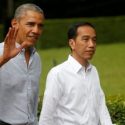There is no Latino groupthink
Alfonso Aguilar,
Liberals have tried very hard to depict the Hispanic community as a monolithic group fully in sync with the agenda of the Left. Not surprisingly, they assured us that Latinos were so offended by Donald Trump’s rhetoric and proposals on immigration that they would come out in massive numbers on November 8th to vote against him.
Yet, to their chagrin, this didn’t materialize. While the number of Latino turnout went up, it only did slightly. Fifty percent of Latinos decided to stay home, clearly not enthused with either candidate for president, not just Trump. At the end, the aggressive efforts by the George Soros funded liberal Hispanic groups to turn out more Latino voters for Hillary failed abysmally.
More impressively, however, is that Donald Trump did better with Latino voters than Mitt Romney, receiving a significant 28 percent of the Latino vote. Moreover, Latino support for Hillary Clinton went down to 66 percent compared to the 71 percent President Obama got in 2012.
Latinos cannot be typecast. They are independent-minded and, as other Americans, will embrace President Trump if he is successful in improving the economy and their quality of life and addressing many of the other issues they care about.
- Alfonso Aguilar
We shouldn’t be surprised by these results, however. Contrary to what liberals have told us for so long, the Latino community is not homogenous. Latinos have a wide variety of views and opinions, which is reflective of their great diversity.
Over half are foreign born or the children of immigrants, while the families of most of the rest have been in U.S. territory for generations. Those who have recently arrived come from different countries in Latin America that have particular idiosyncrasies, not to say customs and traditions.
Race is not a common denominator either for the Latino community is an ethnic, not a racial group. What binds us together is not race, but the cultural heritage of our countries of origin. No less significant is the fact that there’s also substantial diversity in income levels within the Latino population.
Latinos, moreover, also share many of the same characteristics and views of some of the staunchest Republican constituencies. They are, for example, pro-life, church going, extremely entrepreneurial and very supportive of school choice.
Latinos are not, therefore, “natural-born Democrats” as some may think. In fact, polls show that the majority of Hispanics don’t identify as Democratic or Republican, but rather as independent.
Nor is immigration the most important issue to them. Like most Americans, they are primarily concerned with jobs and the economy.
Evidently, many were attracted by Mr. Trump’s call to restore America’s economic greatness and his commitment to create good paying jobs for working Americans. As other Americans, Latinos are struggling to make ends meet. The poverty rates of Latinos greatly exceed the national average and their wages are the lowest in the nation.
Hispanic liberal elites, nevertheless, are in denial. They cannot accept that the Latino groupthink they have touted for decades simply doesn’t exist.
That’s why they reject the exit polling, saying it doesn’t properly poll Latinos and that support for Trump was actually much lower. Yet, Mark Hugo Lopez, a reputable pollster who heads Hispanic Research at the Pew Research Center acknowledged in a recent interview with the Guardian that Trump may have outperformed Romney with Latinos, adding that “the diversity of the Hispanic electorate can explain some of these results.”
Having said all of this, we shouldn’t underestimate the significance of the immigration issue for Latinos. It’s pretty obvious that Trump didn’t do better with them because the majority rejected his view and outlook on the issue. However, if he is willing to deal with illegal immigrants in a constructive way during his first term, as he seems to be indicating, after he secures the border with Mexico and begins deporting those with criminal records, his support among Latino voters could realistically reach 40% or more in 2020.
What we can say for sure after this election is that Latinos cannot be typecast. They are independent-minded and, as other Americans, will embrace President Trump if he is successful in improving the economy and their quality of life and addressing many of the other issues they care about.
He’s certainly already moving in the right direction with his bold comments on the death of the murderous Cuban tyrant Fidel Castro recognizing that his “legacy is one of firing squads, theft, unimaginable suffering, poverty and the denial of fundamental human rights.” Hispanics of Cuban origin, and many other Hispanic whose home countries were taken over or violently tormented by ruthless Communists guerrillas with the assistance of Fidel Castro, were appalled at President Obama’s statement extending condolences to the dictator’s family, while whitewashing his criminal record. They, nonetheless, felt encouraged that the incoming president had the leadership and courage to state the truth that the incumbent president amazingly chose to ignore.
Ironically, I’m one of those who didn’t support Trump over his comments and views over immigrants. I ended up leaving the ballot blank. But like many other Latinos, I have already put the election behind me and am ready to lend him my support to ensure we make America great again.
The author is the President of the Latino Partnership for Conservative Principles and the former Chief of the U.S. Office of Citizenship in the administration of President George W. Bush.
Alfonso Aguilar is the President of the Latino Partnership for Conservative Principles and the former Chief of the U.S. Office of Citizenship in the administration of President George W. Bush.





